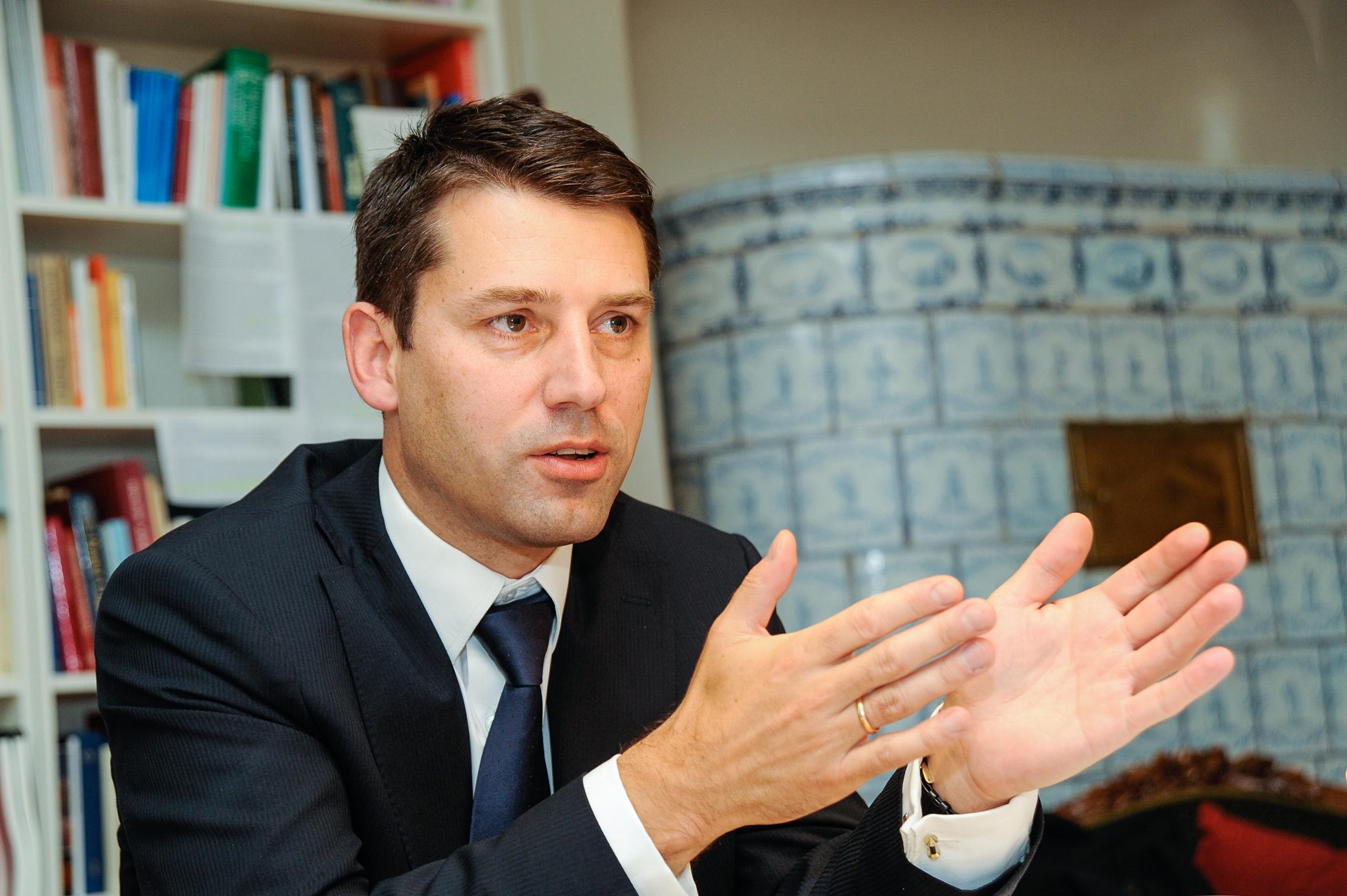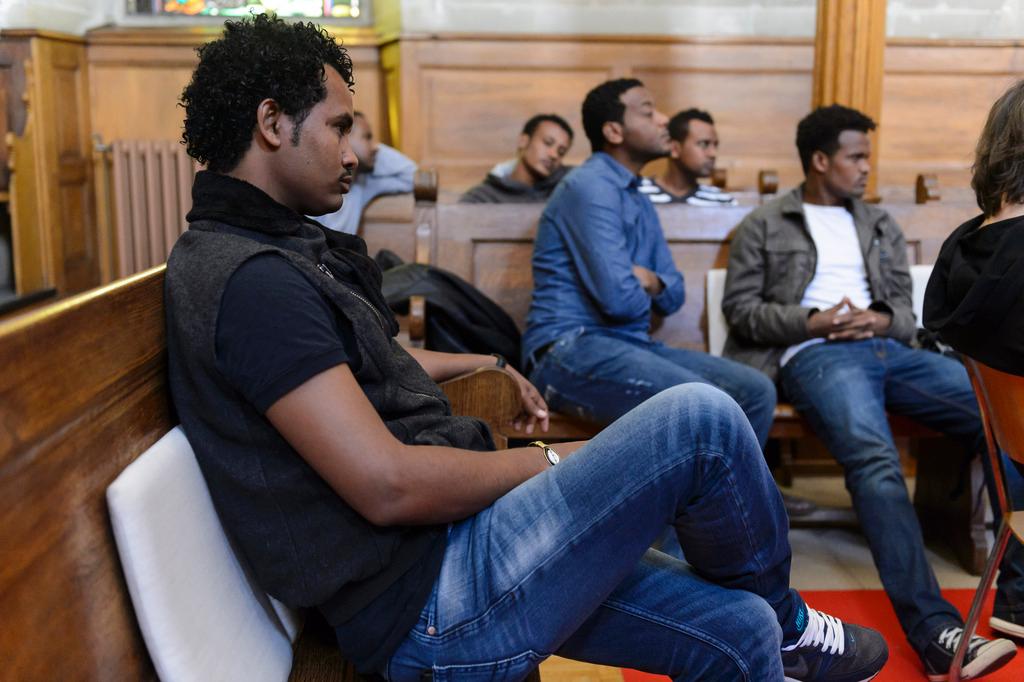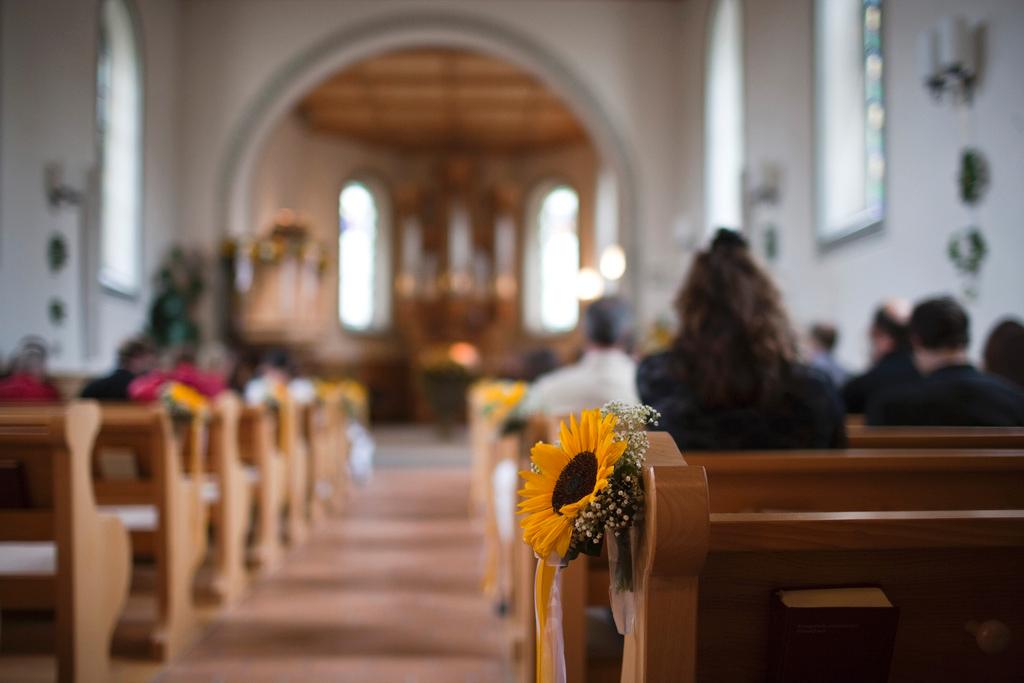‘The relationship between Islam and Christianity is key’

It can be difficult for the different religions to live together, acknowledges the new president of the Swiss Council of Religions, Gottfried Locher. This 48-year-old from Bern is convinced of the importance of nurturing relations between Christians and Muslims. He is also concerned about the increase in cases of anti-Semitism.
Gottfried Locher, who is also president of the Federation of Swiss Protestant Churches, was elected to the head of the Swiss Council of Religions at the beginning of July. He succeeded Hisham Maizar, the president of the Federation of Islamic Organisations in Switzerland, who passed away in May.
swissinfo.ch: The Swiss Council of Religions will celebrate ten years of existence next year. Yet the institution is still little known by the public at large. Are you planning to be less low-key?
Gottfried Locher: Yes and no. On the one hand, we do need to communicate more with the public. Up to now, we have published at most two position statements a year, which is not enough. We must strengthen our ties with the population and give our opinion on topics of current interest, and maybe also produce in-depth studies on specific themes. The Swiss Council of Religions is still trying to find itself, and it must find the best way of communicating.
On the other hand, internal exchanges are working well, and it is important that we maintain a protected environment within the organisation so that the representatives of different religions can discuss freely among themselves. We need the two sides: internal theological debate and communication with citizens.
swissinfo.ch: Your last position statement dates back to the attacks that decimated the editorial staff of the French satirical magazine Charlie Hebdo in January 2015 in Paris. How did the Council analyse this attack?
G.L.: We were unanimous on the need to strongly condemn these acts of horrific violence. And that is what we did. However, after the tragic events, the Council members held a discussion on the freedom of expression and limits of provocation, and in this regard we had differences.
Personally, I think one has to be able to exercise critical judgement, and even show irony or humour towards religion. Democracy needs it. However, the representatives of other religions do not all share my view, especially Muslims.
Reaching a consensus within the Swiss Council of Religions is difficult, sometimes even impossible. When we can not find common ground we often have to make compromises.
Mind you, it would be surprising if a consensus were always easy to find. Each religion has its own way of explaining life. My priority, therefore, is to promote peace among religions. This is not the same as consensus-building. Peace is sometimes difficult, as demonstrated by the situation in the Middle East, and the Council can play a role in maintaining it. Our task is to create a healthy atmosphere for discussion among the representatives of the religions, so as to enable honest and sincere exchanges on the issues under debate.
swissinfo.ch: What topics will the Council need to tackle soon?
G.L.: We must, as a matter of priority, discuss the co-existence of Islam and Christianity. The relationship between these two religions is key. They share a difficult history, and we must take care not to replay past conflicts. The Muslims of Switzerland make up an important part of our population. We must under no circumstances “forget” how to live together.
Moreover, we realise that Jews no longer feel at ease in our country. They feel threatened. The Swiss Council of Religions must examine this problem. I do not know how to explain the emergence of these tensions, but I have the impression that they stem from the changed situation. In the past, the majority of the population was Christian with a small Jewish minority. Now, there is also a significant minority of Muslims in Switzerland. This rise in Islam creates fears and tensions. The general mood has changed.
swissinfo.ch: These fears are also linked to the problem of extremism and, in particular, acts of violence committed in the name of religion. How should these aberrations be dealt with?
G.L.: The Council is united on the issue of extremism: this phenomenon must be stopped, however we still have to find out how. As for those young people who go off to fight alongside the Islamic State, we must tell them that they are not only going to take part in a war, but that they will also land in a hell from which they will not emerge unscathed. This is, however, just one part of extremism. It is hard to know how to fight against fundamentalism. I think we need, above all, to be able to talk openly, and not be afraid to discuss sensitive issues or shy away from taboos.
swissinfo.ch: Following this logic, should the Swiss Council of Religions not intervene more often in controversies affecting the Church, such as that provoked by the Bishop of Chur, Vitus Huonder, who publicly quoted a Bible verse condemning homosexuals to death?
G.L.: We do not normally speak out on this type of question. It must first be examined by the Catholic Church. The problem is internal. It is therefore up to the Swiss Bishops’ Conference to take a stance. On the other hand, if the controversy grows, the Council could discuss it. Each religion must deal with its own problems in the first instance, before we intervene.
“Talking with each other rather than about each other.” The aim of the Swiss Council of Religions is posted on its website. The organisation wants to contribute to religious and social peace in Switzerland, and serves as an interlocutor to the Swiss Confederation. It comprises seven leading representatives of the Christian, Muslim and Jewish religions. It was founded on 15 May 2006 at the initiative of the pastor Thomas Wipf, former president of the Council of the Federation of Swiss Protestant Churches.
The Swiss and religion
According to figures from the 2013 population census, published by the Swiss Federal Statistical Office, the inhabitants of Switzerland of over 15 years of age claim to be (in round numbers): 71% Christian, 21% without religious affiliation, 5% Muslim, 0.3% Jewish, 2.7% other.
Translated from French by Julia Bassam

In compliance with the JTI standards
More: SWI swissinfo.ch certified by the Journalism Trust Initiative













You can find an overview of ongoing debates with our journalists here . Please join us!
If you want to start a conversation about a topic raised in this article or want to report factual errors, email us at english@swissinfo.ch.